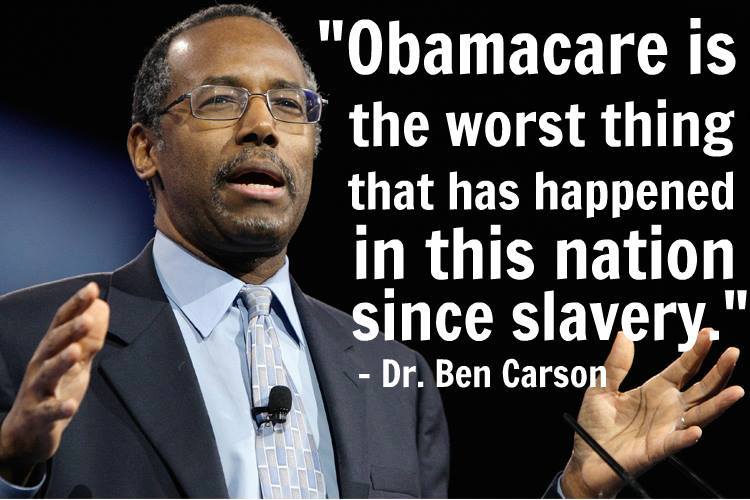
We Are Known By The Company We Keep: Evangelicals LOVE Donald Trump
"True Believer? Why Donald Trump Is The Choice Of The Religious Right" NPR
Donald Trum And The Fervent Self-Deception Of Christian Conservatives
http://paxonbothhouses.blogspot.com/2015/09/donald-trump-and-fervent-self-deception.htmlTrump Family Fortune Began With Booze And Prostitution.
Donald Added Gambling
http://paxonbothhouses.blogspot.com/2015/09/trump-family-fortune-began-with-booze.html
In the last presidential cycle, evangelicals supported Mitt Romney
http://www.pewforum.org/2012/11/07/how-the-faithful-voted-2012-preliminary-exit-poll-analysis/
"Mormonism Is Not A Christian Religion. Founding Prophet Joseph Smith Was A Sex Pervert"
"The Death Of Epistemology"
Why Evangelicals Should Be Terrified Of Trump
“I don’t know,” he said, shrugging. “Why do they love me? You’ll have to ask them. But they do. They do love me.”
Trump is hardly the only one perplexed by his popularity among a subset of the Christian Right, which is currently more supportive of him than any other GOP candidate — including Republican veterans who identify as evangelicals such as Sen. Ted Cruz (R-TX), former Arkansas Gov. Mike Huckabee, and Wisconsin Gov. Scott Walker. The demographic has traditionally endorse candidates who espouse deeply held religious beliefs and focus campaigns on opposition to same-sex marriage and abortion. But while Trump leans conservative on both of those issues (albeit onlyrecently), he has struggled to speak consistently — or even coherently — about his faith, often fumbling to muster answers to the most rudimentary questions about Christianity.
When Frank Luntz inquired in July whether Trump has ever asked God for forgiveness, the famously confident real estate mogul answered no, saying, “I don’t bring God into that picture” before offering a questionable explanation of Christian communion. He later explained to CNN’s Anderson Cooper that this is largely because he usually doesn’t believe he’s sinning in the first place.
“Why do I have to repent or ask for forgiveness, if I am not making mistakes?” Trump said, seemingly dismissing two millennia of Christian teaching on human sinfulness.
Trump was similarly flummoxed when he was asked last week to name his favorite Bible verse, a classic shibboleth among conservative candidates. Trump flubbed that test as well, telling Bloomberg, “The Bible means a lot to me, but I don’t want to get into specifics.”
Yet despite his propensity for spiritual gaffes, Trump still boasts the backing of a number of religious faithful. So what exactly is Trump’s faith tradition, and why do some evangelicals love him anyway?
Trump actually claims liberal Protestantism, but ignores many of its teachings — except one
Trump isn’t evangelical, but it would be wrong to call him irreligious. He claims Marble Collegiate Church in Manhattan as his spiritual home, a congregation affiliated with the Reformed Church of America (RCA). But while he says he worships “as often as he can,” evidence suggests that is a rare occurrence: Officials at Marble Church issued a statement last Friday announcing that Trump is not an “active member” of the congregation, although sources tell ThinkProgress that his parents and ex-wife were very involved and his children were baptized in the sanctuary.
The statement also implied that Trump’s lack of membership is due partly to his repeated insistence that he is Presbyterian, having grown up attending First Presbyterian Church in Jamaica, Queens. Church administrators told ThinkProgress that Trump was indeed confirmed and attended Sunday School at the now majority-black church, and the former reality television star speaks fondly of his overall experience with Presbyterianism.
“I’ve had a good relationship with the church over the years,” he told the Christian Broadcasting Network in 2012. “I think my religion is a wonderful religion.”
That line is somewhat puzzling, however, given that First Presbyterian is affiliated with the Presbyterian Church (USA), a liberal mainline Protestant denomination that espouses views that directly contradict much of Trump’s policy agenda. Trump, for example, called immigrants “rapists” and “drug dealers” when he announced his campaign in June, and recently unveiled a wildly impractical immigration plan that calls for the mass deportation of America’s 11 million undocumented immigrants. The PC(USA), by contrast, is a supporter of comprehensive immigration reform and openly opposes policies that rely on “self-deportation” efforts, much less the widespread ejection of undocumented people from the country.
And while Trump has opposed marriage equality “from the standpoint of the Bible,” the PC(USA) both ordains LGBT pastors and embraces same-sex marriages.
Interestingly, although Trump has appealed to religion when condemning same-sex weddings, marriage is the one topic where he has shown rare sparks of humility. When CNN asked him in June how he would respond if a same-sex couple pointed out that his support for “traditional” marriage seems hypocritical given his own three marriages, the normally unflappable Trump offered no defense, admitting, “Well, they have a very good point.”
To this end, there is at least one point of agreement between Trump and the PC(USA) — one that may help explain his otherwise confusing dedication to the tradition: PC(USA) churches generally grant wide latitude on issues of divorce and remarriage, whereas Marble Church and the RCAdeem all divorce sinful except for in cases of adultery or desertion. In fact, a number of theologically conservative denominations oppose divorce in most cases, including the Southern Baptist Convention (SBC), which has passed stringent statements decrying the practice. The group also recently outlined a plan that asks pastors to take drastic steps to discourage divorce among parishioners.
Trump either doesn’t understand or isn’t sympathetic to conservative ‘religious liberty’ debates
This year, several conservative candidates — evangelical and otherwise — have embraced the issue of “religious liberty,” arguing that marriage equality and contraception advocates are threatening to impinge on the religious freedom of conservative Christians. SBC leaders havequizzed White House hopefuls about the concept, while Huckabee and Cruz have framed theirentire campaigns around the issue: Cruz even told Sarah Palin that if he is elected president, “the persecution of religious liberty ends that day.”
Yet when Trump was directly asked about religious liberty by a reporter from the Christian Broadcasting Network — specifically the impact of legalizing same-sex marriage nationwide — he declined to acknowledge the domestic debate. Instead, he pivoted to a discussion of Christians persecuted abroad, repeating the progressive axiom that true Christian persecution is happening in other parts of the world, not among evangelicals in the United States.
“If you’re from Syria and you’re a Christian, you cannot come into this country — and they’re the ones that are being persecuted,” he said. “If you’re Islamic and you come in, hard to believe, you can come in so easily. In fact, it’s one of our main groups of people that are coming in. Not that we should discriminate against one or the other. But if you’re Christian, you cannot get into the country … I thought that was unbelievable. We have to do something about it.”
Trump went on to add that he “will be the greatest representative of the Christians that they’ve had in a long time.”
Trump’s assessment of the situation isn’t accurate, of course, as persecuted Christians have been allowed to enter the United States as refugees. Nevertheless, his answer should unnerve rank and file members of the Christian Right, who — while sharing his concern for persecuted Christians abroad — have dedicated substantial resources to combatting the LGBT rights movement by appealing to religious liberty.
![]()

Trump is pulling the Pat Robertson vote
Tump’s convoluted faith statements notwithstanding, his appeal among a certain branch of the Christian Right persists. For many, this defies conventional wisdom, as evangelicalism is often mischaracterized as a monolithic voting bloc that only supports the most “devout” candidate.
In reality, evangelicalism is a bit more complicated than that. While less divided than, say, the “Catholic vote,” the Christian Right has multiple flavors, encompassing a range of theological dispositions and races. Hispanic evangelicals, for instance, are a rapidly growing group.
As such, any evangelical support for Trump should be qualified, as the crowded Republican field has stretched all GOP voting blocs across over a dozen candidates. But the larger question with Trump, as Elizabeth Stoker Bruenig wondered aloud in The New Republic, is why any evangelical supports him.
The answer, according to several lengthy analyses of Trump’s campaign, lies in two oft-ignored truths. The first is that some evangelicals don’t simply vote for someone just because they share the same faith, a trend likely to accelerate as Republicans scramble to nominate someone they think will win the general election — or at least break the status quo. As longtime religion reporter Amy Sullivan notes over at Yahoo, “While evangelical Republicans sometimes have different priorities and values than their non-evangelical peers, this could be an election cycle in which they vote as Republicans first and evangelicals second.”
The second reality is that while Trump struggles with scripture, his ideas aren’t alien to evangelical pulpits. Thousands of Christian churchgoers have spent years listening to a religious leader who echoes much of Trump’s vitriol, if not his bombastic style — namely, famous televangelist Pat Robertson. Robertson is known for calmly articulating radical positions justified by thin theology: He claimed that the Hurricane Katrina resulted because God was angered by LGBT acceptance, made blanket statements condemning Islam and while expressing fear for Arab Christians, and warned that if the immigration reform passes, America’s politics will be dictated by Mexico.
All of these ideas harmonize with Trump’s symphony of reactionary positions, which — when combined with evangelical voters swayed more by Trump’s anti-establishment charisma than his policies — is enough to cobble together a sizable evangelical primary voting bloc.
“…These appeals might draw the stray evangelical vote here or there,” Bruenig writes. “But if I had to surmise which subset of the evangelical category Trump has struck a chord with, I would guess it would be that intransigent Robertson crowd, the evangelicals who are perpetually dismayed with the Republican establishment Trump is now confounding.”
Whether this support will be enough to ordain Trump as the Republican nominee is still anybody’s guess. But for now, “The Donald” appears to be shepherding his own unique flock — even if he doesn’t necessarily share their views, or even their faith.
This article is part of our ongoing series on the faith of presidential candidates. You can find our first entry, which chronicles Gov. Scott Walker’s questionable claims to evangelicalism, here.


























